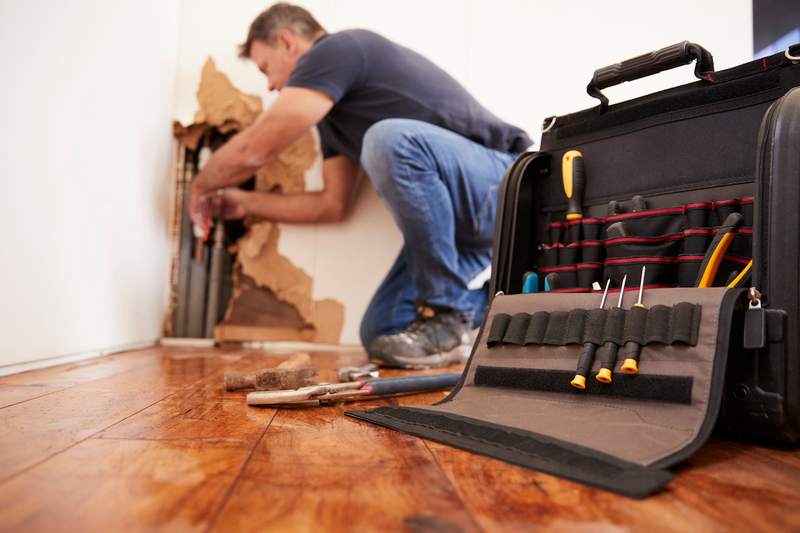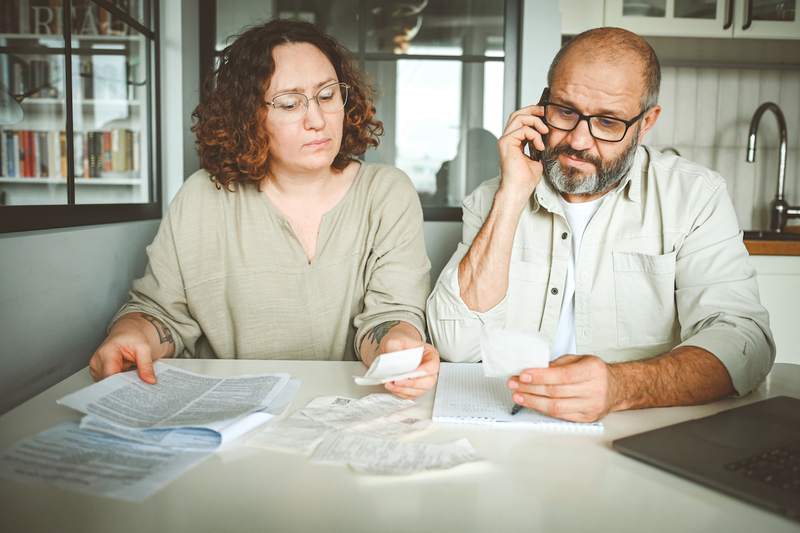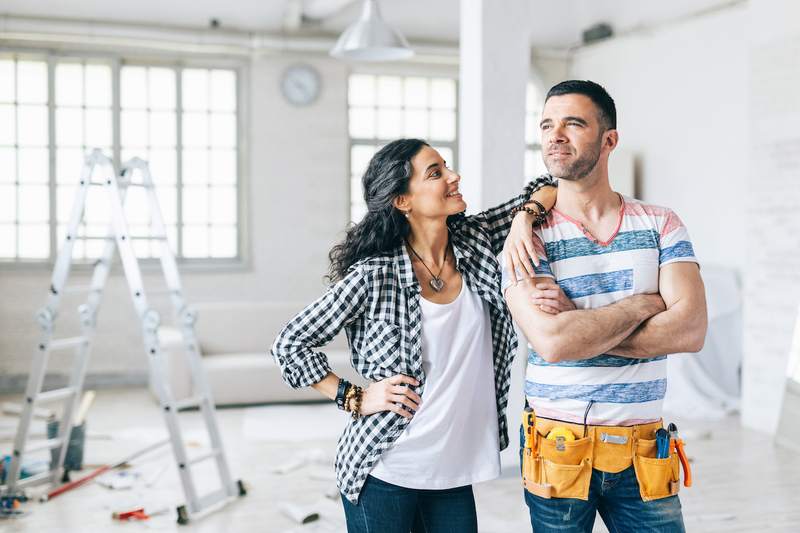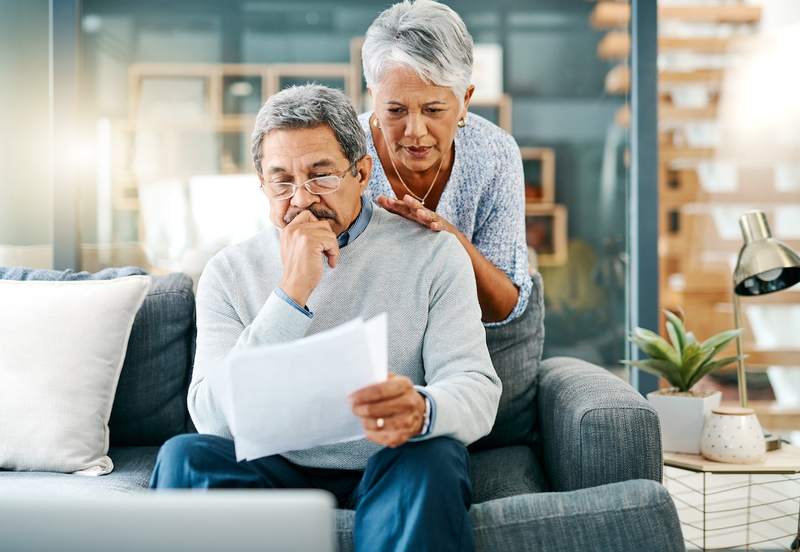Like getting married or having a baby, buying a home for the first time can be a big step toward building a prosperous life. But it’s also easy to overlook the risks and potential downsides of owning a home. Before you commit financially, it’s important to know that homeownership doesn’t always work out as planned.
Key Takeaways:
- There are several benefits to owning a home, such as building equity with each mortgage payment, and growing it further through property appreciation.
- Homeownership can lead to growing wealth, but the risks and costs associated mean it’s not right for everyone.
- In some cases, declining property values, large expenses, insurance, property taxes, and homeowners association dues add up to more cost and trouble than homeownership is worth.
Benefits of Owning a Home
Many people work for years to buy a home — and with good reason. Overall, home values tend to increase over time.
Here’s a look at the financial benefits of being a homeowner.
A home likely will increase in value
Homes tend to perform well as an investment if you take the long view and maintain the property. But, as with any investment, it’s important to remember that coming out ahead financially is not guaranteed.
Every real estate market is different. While some areas have seen skyrocketing home values, others have seen only small increases, if any. In the worst case, you could see the value of your home decrease. The local job market, interest rates, proximity to amenities, and climate may influence home prices.
You can help preserve your home’s value with regular maintenance. Many homeowners also renovate or upgrade home features to boost property values.
You build equity with each payment
Home equity is the value of your property minus any outstanding mortgages or home equity loans. For example, if a home’s market value is $300,000 and the owner has a $200,000 mortgage, the owner’s equity would be $100,000.
Every monthly payment first pays off any accrued interest. The remainder goes toward paying down your mortgage principal, which is the total outstanding amount owed to your mortgage lender. Progress may seem slow initially, but the portion of your payment going toward principal rather than interest will grow over time until you’re eventually debt-free.
More-predictable housing costs
If you’re used to renting, then you know rent can — and often does — increase. How much the property owner can legally raise the rent depends on where you live. These increases can be frustrating and expensive, but homeownership offers an alternative.
Buying a home with a fixed-rate mortgage locks in the interest rate for the life of the loan. This means your monthly mortgage payment — excluding insurance and taxes — will remain the same as long as you have that loan. Having a fixed interest rate on your mortgage helps provide peace of mind that your monthly housing costs won’t increase without warning.
Homeowners can do what they want with the property
Renters lack control over how well the building and grounds are maintained. Landlords also usually set rules about what renters can do to a property, and may prohibit tenants from repainting the walls or removing carpets without permission.
Owning a home means you’re the boss, especially if you’re not subject to the rules of a homeowners association. You can repaint the exterior and interior, upgrade the appliances, remodel, add a pool — you name it. Buying a home gives you autonomy to make changes to your property.
More privacy
Renters may have to allow their landlord in for inspections, repairs, and showings. If you don’t want uninvited guests visiting your home, homeownership offers more privacy. Anyone who comes in is there because you invited them, including repair and maintenance workers.
If your home has a fenced-in yard, you have further privacy to use the space as you’d like, as long as you follow local property laws and HOA restrictions. Whether you want to work on a car, create an outdoor art studio, or enjoy your hot tub wearing less than you would in public, you call the shots.
Significant tax benefits
One of the biggest tax benefits available to homeowners is the ability to deduct what you pay in mortgage interest from your taxable income. Another useful deduction is for discount points, which borrowers can pay the lender upfront in exchange for a lower interest rate. Homeowners also may be able to deduct property tax payments. If you use a home office exclusively for work purposes, you may be able to deduct a portion of your housing costs as a business expense, lowering your annual income tax bill.
Risks of Owning a Home
While there are many advantages to buying a home, the reality is that it doesn’t always work out. Some homebuyers go into the process with the best intentions, only to end up in worse financial shape than before. A common, unrealistic expectation is that homeownership is always a great decision — a bet you can’t lose, says Blaine Thiederman, founder and principal advisor at Progress Wealth Management in Arvada, Colorado.
“Homeownership is a huge risk, especially if you have a large mortgage that depends on you and your partner’s income remaining stable,” Thiederman says.
Here’s a look at the financial risks of being a homeowner.
Properties can lose value
A common financial risk of homeownership is that the home’s value decreases. As a result, the homeowner loses equity, and might end up owing more on their mortgage at some point than the home can be sold for. The homeowner then would be unable to refinance or borrow cash against their equity. If they have to sell, then they would be selling the home at a loss.
There are several reasons why homes depreciate. Some homeowners underestimate the cost of repairs and maintenance in addition to the more obvious cost of paying the mortgage. If you fail to maintain your home and it starts to appear run-down, that’s going to hurt its value.
Even if you do a stellar job with upkeep, your home’s value also depends on market conditions. During the 2008 financial crisis, for example, national home prices fell by more than 20% on average.
Local factors can drive down the value of your home as well, especially if there’s an undesirable addition to your neighborhood — like a noisy venue or a power plant.
It’s more difficult to move
Moving to a new home is easy enough when you’re a renter. Wait for your lease to expire, sign up for a new rental, and move your stuff.
As a homeowner, you’ll have to go through many more steps, and it can take a while to sell your home and find a new one. A 2022 study from the National Association of Realtors found that homes were on the market for an average of 31 days — and that doesn’t include the time needed to close. Paying closing costs on both ends, figuring out taxes, and dealing with a new mortgage can be a major hassle and expensive.
There’s also the possibility that you’ll discover a deal breaker in your new living situation after you move in, and you’ll want to leave right away. This could include anything from noisy neighbors to a fire station up the street that sends out trucks with loud sirens all day. A renter has a lot more freedom to move out of these situations, but a homeowner would have to sell — and risk a loss — to move quickly.
Risk of default
When you’re taking out a mortgage, it’s important to be certain you can afford the loan and won’t fall behind on your payments. However, changes in your income and employment — or events outside of your control that affect your income — could make affording that monthly payment more difficult down the line. Examples include losing a job, a natural disaster or accident damaging your home, or an unexpected injury or illness that affects your ability to work.
Changes to your mortgage also can affect its affordability. If you have an adjustable-rate mortgage, your interest rate will change according to market conditions. An increase in your interest rate will raise your monthly payment and could make it more difficult to pay.
Failure to make your monthly payments incurs late fees and, eventually, leads to foreclosure. If the lender forecloses on your home, it would repossess the property and you would have to move out. You also would be left with a poor credit report, which could make it challenging to buy or even rent another home.
Expensive problems
Some homebuyers skip the home inspection to close on a house sooner, only to move in and find the place needs expensive repairs or is in some way unsafe.
The inspection is supposed to be thorough enough to uncover any major issues with the home, including anything that is broken or poses a health or safety risk. However, the inspector only looks at areas of the home that are visible and accessible. Home inspections also generally don’t cover mold, asbestos, lead, air quality, pests, or termites. This means you could end up paying for expensive repairs to fix unexpected problems.
High upfront costs
Buying a home is usually the largest purchase you’ll ever make. A lender will likely cover the majority of the cost through a mortgage loan, but you’ll still have to come up with a down payment and enough cash to cover closing costs, which usually run 2% to 5% of the purchase price.
For a down payment, many borrowers aim to save up 20% of the purchase price, as this helps with mortgage approval and avoiding the added cost of private mortgage insurance. However, you often can buy a home with far less, especially if you qualify for government-backed loan programs such as those offered by the Federal Housing Administration, Department of Agriculture, and Veterans Affairs.
Property taxes
When you’re a renter, the owner pays all property taxes. When you’re a homeowner, that bill comes to you. Depending on your location and the value of your home, property taxes can be significant. Average property taxes are lowest in Hawaii, Alabama, and Colorado, and are highest in Illinois, New Jersey, and New Hampshire.
Some homeowners divide their property taxes and homeowners insurance into 12 payments and include them in their monthly mortgage payment into an escrow account. This is a convenient way to pay those required annual expenses. As a bonus, your lender will make those tax and insurance payments for you when they’re due.
HOA dues and rules
Some homes are located within the boundaries of a homeowners association. HOAs are meant to protect property values by enforcing guidelines for the neighborhood and paying for services and amenities such as parks, snow removal, trash service, fences, community pools, and signage.
But HOAs often have costly dues and may levy an additional one-time fee for a big project. All homeowners in an HOA must pay, even if they won’t use the new playground or tennis court.
HOAs also typically enforce specific guidelines and standards for home appearances, such as paint colors, roof tiles, and landscaping and lawn care. If you don’t like being told what to do, you may want to find a home outside of an HOA.
Renting vs. Owning a Home
Buying a home is often thought of as a more worthwhile investment than renting, but there are different pros and cons to buying vs. renting.
Renters can move relatively easily whenever needed, and they have lower upfront costs compared with homebuyers. Renters also don’t have to directly pay property taxes, homeowners insurance, and maintenance costs. There’s less financial risk in being a renter because you don’t have to worry about maintaining the property or its value.
Perhaps the biggest advantage to buying a home is that your mortgage payments build equity for you. Plus, you have much more control over how you use your home.
Pros and Cons of Buying a Home
| Benefits of Buying | Drawbacks of Buying |
| A home likely will increase in value. | Properties can lose value. |
| You build equity with each payment. | It’s more difficult to move. |
| More-predictable housing costs. | Risk of default. |
| Homeowners can do what they want with the property. | Expensive problems. |
| More privacy. | High upfront costs. |
| Significant tax benefits. | Property taxes. |
| HOA dues and rules. |
The Bottom Line on the Risks and Benefits of Owning a Home
For many buyers, homeownership is a dream come true. It’s an opportunity to build equity and have the freedom to make the most of the space. Unfortunately, homeownership doesn’t always work out, and buyers could end up losing money — or even the home itself. But you can set yourself up for success by understanding and preparing for the financial risks.
Eric Rosenberg contributed to the reporting of this article.






